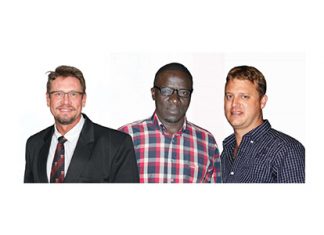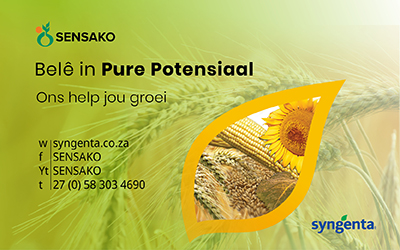‘South Africa belongs to all – not just some – who live in it.’ This was according to the keynote speaker at Grain SA’s annual Congress held at NAMPO Park in March, who was asked to speak on ‘The impact of political and policy environment on agriculture’.
Chief Justice Mogoeng Mogoeng is a man who wears many hats aside from the obvious one in his role as leader of the South African judiciary. He is husband, father, judge, academic, pastor, farmer – but probably most notably – he is a man of prayer. It is a deep conviction of faith that drives one to kneel in prayer at the constitution of the National Assembly as he did in May 2019, encouraging people about the importance of prayer for our country and the need to pray purposefully for specific solutions to problems like corruption, unemployment and crime. True to form the Chief Justice asked attendees to first pray with him before he began to address Congress:
‘Lord Almighty, I pray: Let there be more hope than discouragement. Let there be more love. And the realisation of how much more we can achieve as a united and truly reconciled nation than we have imagined. May Your multi-faceted grace spread across this nation and across the world. Fast track the glorious and prosperous future that we have been hoping for. Amen.’
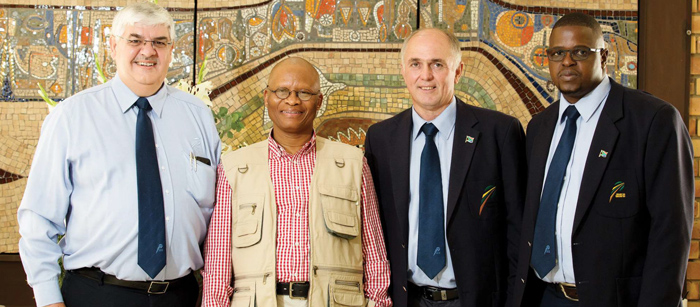
‘Thank you, thank you, thank you!’
Chief Justice Mogoeng expressed gratitude to all producers of South Africa, acknowledging the critical role played in pursuing the production of quality food to feed humanity. He recognised that producers have been facing challenging times and thanked them for ‘soldiering on’. He also empathised with producers, acknowledging that the way issues are articulated by other South Africans in the political arena, could be discouraging. He believes there are many potentially damaging statements being made. ‘I am alive to the legitimate concerns of producers given rise to by our history and the realities of our times.’
- Financing for producers: He knows the risks for producers who are increasingly unable to fully utilise their land’s value as collateral for financing since banks have expressed reluctance to offer finance to producers in light of the looming possibility of land expropriation without compensation (EWC).
- Farmer development: He has long been aware of the Grain SA Farmer Development Programme and the critical role it plays in recognising that every South African – black or white – deserves the possibility to free their potential as farmers. He acknowledged Grain SA’s willingness to reach out a hand of mentorship to farmers.
‘What informs the politics of our day?’
‘We, the people of South Africa…’ The Constitution doesn’t specify any particular race, culture or creed – ‘we’ means everybody. It also recognises the injustices of the past and determines the Constitution is an instrument for healing. There is an assumption of the role of improving quality of life for all – and of individual and collective responsibility in the pursuit of a principled national unity and reconciliation by all.
‘I will never embrace the notion that any of our people is a thief.’ The Chief Justice holds that it is necessary that we understand what is meant by ‘the injustices of the past’. The reality is that the policies and politics of that time meant that whites could buy land, but blacks could not, even if they had all the necessary resources to do so. How did such past injustices affect people’s participation in a meaningful way in the economic sector, in access to land and in the agricultural sector? He says we have to grapple with the historic realities or there will be no lasting resolution – not until ‘we are brave enough, principled enough and sensitive enough’ to attend to cries for inclusive, meaningful participation and access to land. There is a responsibility to identify solutions that build rather than divide, ensuring that ‘no ball is placed in the hands of opportunistic political players’.
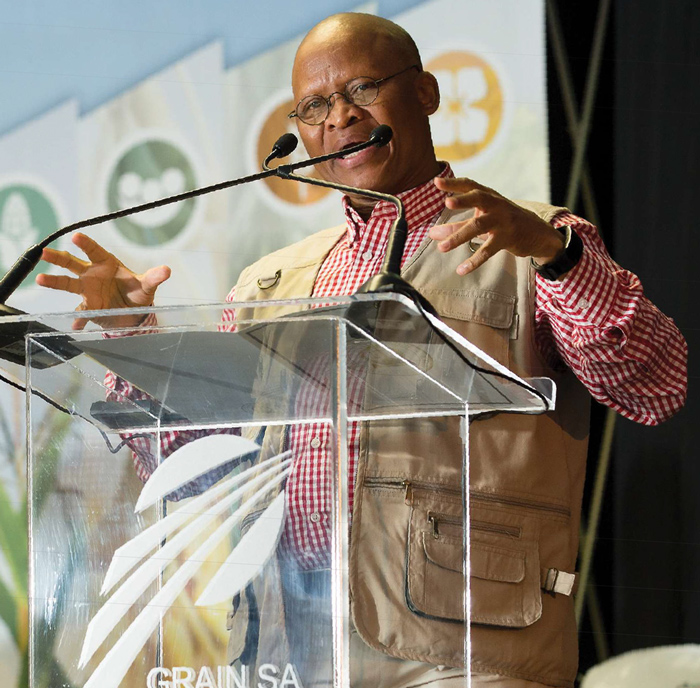
‘We are a family’
He believes our country needs healing from brokenness, suspicion, racism, tribalism, prejudices and mistrust. ‘Whether we like it or not we are a family and we belong together.’ He believes there is a togetherness and oneness between fellow South Africans, demonstrated because we find joy together and we’d be foolhardy to take this for granted. He encouraged producers to not entertain negative thoughts that they have no right to be here as they belong here. ‘We must avoid history repeating itself and stand together – our problems will not be solved by politicians. We, all the citizens of this country, are the ones who need to find the solution.’ He says he looks forward to the day when the private sector, organised agriculture and government work more closely together than ever before. In past times land redistribution was not a success. People with no interest in farming were given land. ‘We need to work together to transfer land into the hands of people who really do have the heart for farming and who have the capacity to farm; and then we ensure consistent mentorship and support from government.’
‘Communication is key’
The Chief Justice encouraged aggressive communication that could reach mainstream media with news of the good work being done. Only when people know who you are and what you do, they will listen more sympathetically. He encouraged producers to demand to be heard by the most senior leaders of the land, even the President.
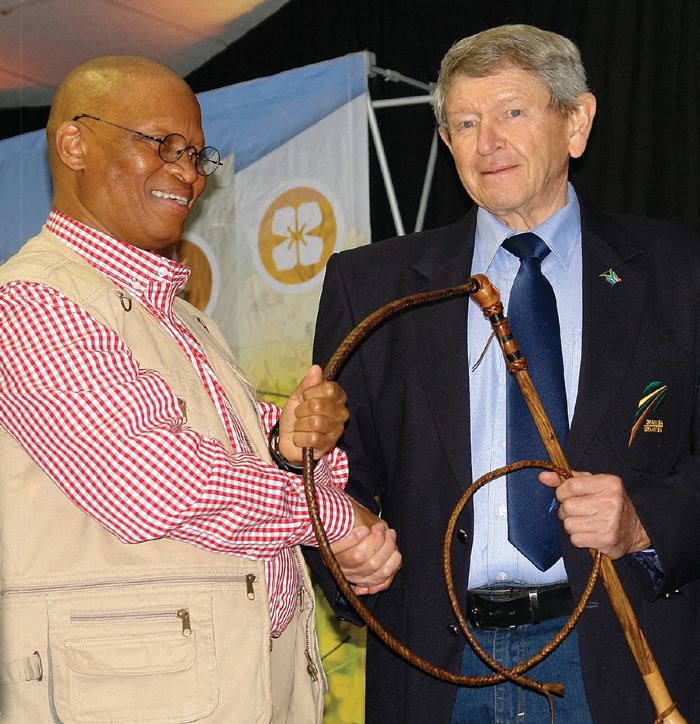
‘We need to engage and discuss policies for the sector and inform our leaders why the grain economy is under pressure, and advise how government could enable competitiveness. Don’t let other, less representative, less informed voices speak up on your behalf.’
‘Sacrifice and compromise will be required of all…’
‘We need to find ways to improve the quality of life for all citizens.’ Chief Justice Mogoeng said he could vouch for the selflessness of producers and their spirit of generosity – that is the spirit that knows no colour. He also believes that producers have what it takes to contribute to the stabilising of the sector.

‘We need to know if EWC will happen or not.’
He encouraged producers to demand a speedy resolution of the land issue, recognising policies designed to ensure meaningful productivity and sustainable farming opportunities are needed. He emphasised the need for current producers’ experience and their invaluable institutional memory. ‘I would hate to see a situation where our producers close shop, or all leave the country, because you can’t farm productively in South Africa. South Africa has a bright future and only you and I, with steely determination, can ensure this beautiful country does not go to waste.’









